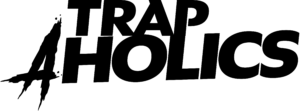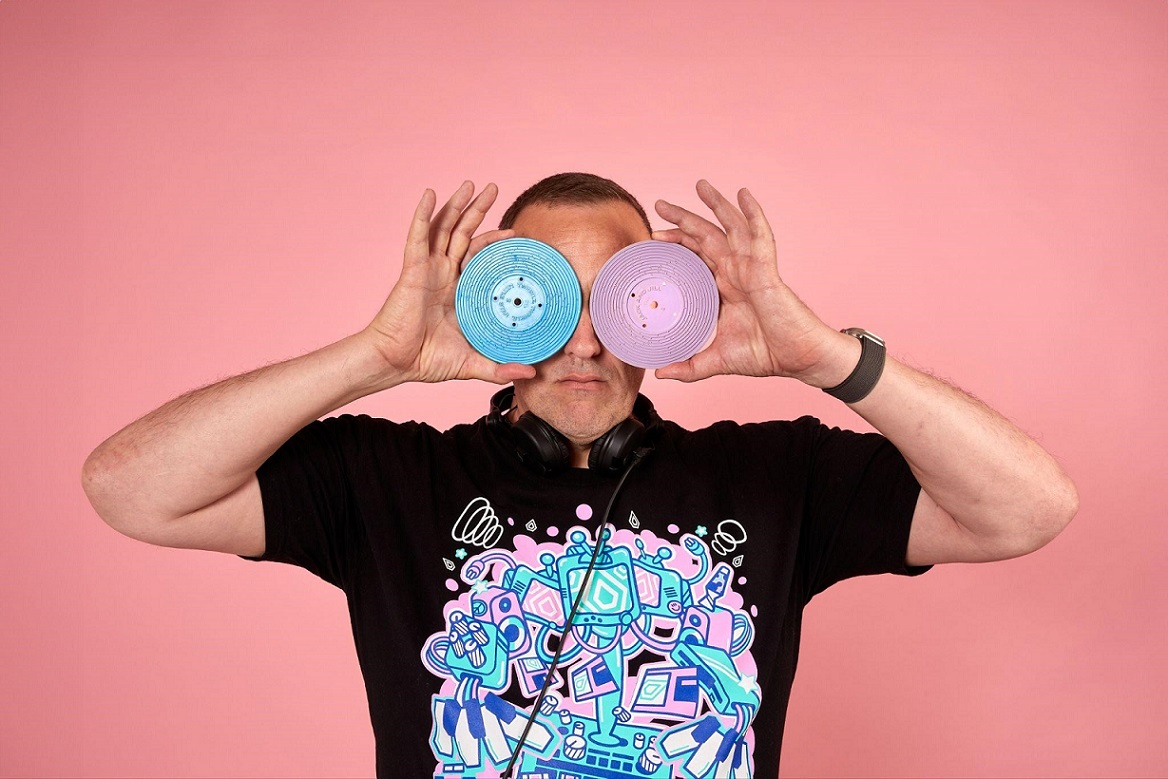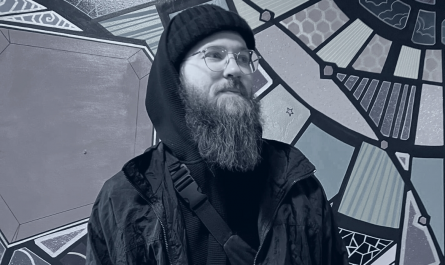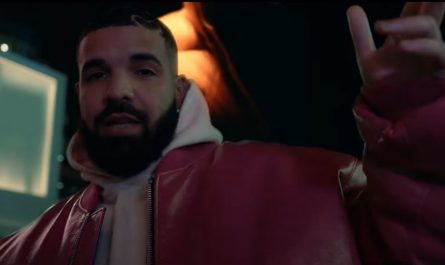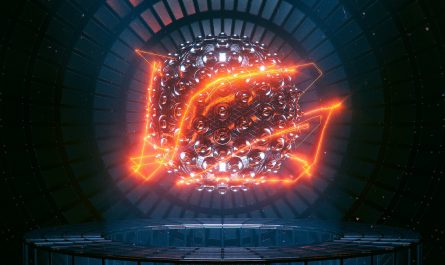Despite running around like a chicken with my head cut off for much of last weekend’s Infrasound Music Festival in an effort to catch as much as possible, I was fortunate enough to have a chance to sit down with UK drum and bass icon BCee. With a career spanning a full 23 years and counting, he is a certified titan of the scene. His legacy includes a myriad of chart-topping hits and the founding of Spearhead Records, which has helped nurture such talents as Hybrid Minds, Netsky, S.P.Y, and countless others.
During our conversation, he gave us some insight regarding his thoughts on the festival and what he himself has in store for fans. His personality was positively endearing and I’m beyond thankful that we we were able to meet. Let’s hear what he had to say.
First off happy Infrasound and congrats on your North American tour! How do you feel about the set you’re gonna play for us this evening?
Yeah, I’m excited man! This is the first stop on a two-week tour here in the States and then after that, I’m off to Croatia, Czech Republic, and Australia all this month so this is kind of like the pilot scheme of a new set today. I tend not to fully plan sets because I like to feel the vibe of a crowd and see where it goes. But I do also have a kind of planned set structure and about 100 tracks on the shortlist that I hope are gonna work well and then draw from that. Then as the tour progresses that becomes more of playing the stuff that works.
that’s what got me into being a DJ, really. Wanting to just play people music and go, “You have to hear this!”
You get to be a bit experimental tonight!
Yeah! So, we’re gonna cover some new ground, but yeah, I like to leave it a little bit open, you know? The rawness of it… that’s what got me into being a DJ, really. Wanting to just play people music and go, “You have to hear this!” So tonight is about all the tracks I’ve sifted through in the last few months to go, “You have to hear this one, you’re gonna love this!”
You’re a real curator, I love that. So, as somebody who’s been making music since at least the early 2000s… well, I’m not sure when you actually started, did you start as a teenager?
Oh, yeah, so my first release as a drum and bass artist came out in 2001, which is a frightening – 23 years ago – that is frightening, wow – so longer ago than a lot of people here have been alive. But I’ve been trying to make music for my entire life. So, when I was like eight or nine years old, my great aunt passed away and she didn’t have any other family and we cleared out her house. She had old record players and the old reel-to-reel tape machines and stuff like that, and I took them all home and I started making my own radio stations just with old Elvis things. And even before that my mum said, I used to have a toy called “stickle bricks” which was kind of a bit like Lego, but spikier, and when I was two years old, I’d take the wheels and put them flat and say they were record players. So, you know, it’s been in the blood a long time, it just took me until I was about 25 to make anything that anyone else wanted to listen to.
You were a true pioneer for that, haha. How do you feel about the direction of drum and as a genre both here in the US and abroad?
There’s nothing wrong at all with the new kind of mainstream drum and bass. But it’s almost like its own kind of scene in itself, because it’s so pop culture, particularly in the UK it’s all over the radio. Most of the artists that are all over the radio are brand new artists, and I think that we’re going to see a little bit more of a shift back to… um, I don’t think the music will necessarily change but what got me into drum and bass was its underground culture – which is what I love to see here at Infrasound – because it was for the alternative people. So I used to go clubbing and in London you used to have to wear a shirt and trousers to get into a club if you wanted to go to, like, an EDM thing. But at a drum and bass rave, you just wore whatever. And you didn’t wear expensive, like… you weren’t wearing like Tommy Hilfiger, or whatever. You were wearing a T-shirt, some trousers, it didn’t matter what you were wearing. And it was that underground culture that made drum and bass so special. My observation at the moment of the scene is that some of the scene has come away from being underground, but I think we’ll see that underground have a resurgence because people don’t wanna just follow mainstream culture, you know? It’s always been about doing something a bit different. So it’ll be interesting, I mean, I don’t really have opinion on it, I’m just more observing it.
you CAN still make good underground music that people listen to for a long time, that makes enough money to pay the bills, and enables you to keep doing it.
But it sounds like you’re optimistic for its future at the same time?
Yeah, I think one of the things I’ve learned is I got really close to thinking, “Is it worth carrying this on? You know, Am I still sticking to my core music I wanna make?” and stuff like that. What I’ve realized more recently is there’s two ways to look at this: you can look at, “Can I get 1 million streams on Spotify in the next month, and can I gear to TikTok? Is that what we’re going for?” Or, “Do we just, as a marketing strategy, wanna make music that people listen to for a long time?” And actually, you CAN still make good underground music that people listen to for a long time, that makes enough money to pay the bills, and enables you to keep doing it. It’s just a different way of looking at it. And so you have to kinda not get distracted by pop culture and “everything’s gotta be instant,” and keep making what you love! And I’m optimistic that there is room for people to keep making what they love, if that makes sense.
I love that take. Alright, so let’s talk about Spearhead Records a bit. What was your objective when you started Spearhead Records, and is your goal today still the same as it was back then?
Yeah, I started Spear for two reasons, really. Well, I had another label before that that I ran with another guy called Doug called Rubik Records. And we kind of started the first label because nobody would sign our music. Like, everyone was saying, “Ah, it’s nice, but it’s not for us.” So, we started a record label and then I wanted to do my own thing a bit because we had different directions. So then my objective for Spearhead was that I wanted to make a path in the drum and bass world, which did get the big players involved, you know, the serious contenders in the scene. But also it was uplifting little tracks that, in 10 years time, they’d have a hook, or a melody, or a vocal that you still remembered. And artists wanted to get into it, wanted to have a career in it, and so I think that objective has happened because I still listen to a lot of old tracks and they sound fresh. And, you know, sometimes people will say to me, like, “Oh, you got Netsky early on on the label, and S.P.Y early on, and Lenzman!” And it wasn’t so much that I had a magic ear for it as like, I knew those guys or bumped into those guys or spoke to those guys online as people. And they seemed real serious about what they wanted to do, and they seemed like they’d still be here wanting to do this in a lot of years.
I’d rather sign something that I love and lose money on it than something that I hate and make money on it.
They certainly lived up to it!
They have! And that’s why they’re still here. Not everybody has, but most people I’ve worked with have and they’re still going. So, my objective now for Spearhead is still to not worry about what anyone else is doing, just to make music that I like, sign music that I like. Music that I think is uplifting, has got a vibe to it, it’s still gonna be memorable in another 10 years, and, you know, continues to cut its own path. At the moment it’s really hard to get bookings and do events and everything else, but do you know what? I can make them decisions because we’re independent to the core, don’t have to answer to anybody else. So I’d rather sign something that I love and lose money on it than something that I hate and make money on it.
You’re a bit of a rebel in that sense.
Yeah, I’m just trying to be true to that. It just doesn’t feel right otherwise, you know?
I guess that kind of answers part of the next question, which is what kind of inspirations do you draw from when putting together a track? It sounds like part of that is just an innate drive to make music, period.
In terms of when I’m writing my own music, do you mean? Yeah, I draw a basic, well… essentially, I draw from samples. So, I don’t play live any instruments at all. You know, I understand music from just years of doing this, but I’m entirely self-taught, and further in my career, YouTube-taught and peer-taught, rather than learning instruments. My music always been sample-based, so I will find old records, old samples, even like stuff that I think, “I wonder if I could use that in a track?” And then I’ll sample it and try and use it, and build stuff around it, through to ideas where, you know, I wanna say something, but… I’m good at talking, but maybe on an emotional level that’s more difficult. But I’ve always enjoyed the challenge of taking samples and sounds I like and then putting quite a deep, emotional-based story on top of that, but leaving it open enough that it will work in a club environment and the people can still relate to it. There’s a lot in that. For example, I use this one a lot, but I wrote a track called ‘Lost & Found.’ It was about a friend of mine who used to be a heroin addict, was clean for 17 years, unexpectedly died. But we wrote the lyrics to be as open as possible, and I know that some people have used it to walk down the aisle to for their wedding. I didn’t dare email and say, “You know that was a written for a funeral?” But I like that it means a lot to me, but it can also mean something to you, and more people can connect with it.
So what’s your proudest accomplishment as an established drum and bass producer? I’ll expand this question, actually, to before you really had a commercial career in music if there was something that you’re more proud of before that.
I guess the thing that I feel is my biggest accomplishment, really, is that I’ve been doing this for so long and people still give a shit, you know? Because, originally, I just wanted to make one track and get one track released. And here we are! And for every single release, I’ve had input into the artwork, I’ve had input into the vocals and the production, and the prep, manufacture, and the mastering… and to look back, I look back over all the releases and I still now get people coming to me, saying, “This track stopped me from suicide,” or, “This track done this for me, or done that for me.” And I didn’t really set out for any of them things, but the way that the music and the different tracks on the label have connected with people over the years… It’s been magic. And every time I hear one of those stories, I’m really blown away by it.
Somebody looked at me and said, “Yeah, but you know that story you told us about when that person was gonna get divorced and they listened to ‘Keep the Faith,’ and then they decided to give their marriage another go and they’re still together 10 years later?” I bet that Beatport number one guy hasn’t got stories like that.
That’s got to be a very fulfilling feeling.
Oh, it feels mental! Sometimes it makes me feel a bit fraudulent, because I think, “I’m just making music I wanna make,” but I love that that’s the power of music. That connection’s there and, you know, I won’t say the artist’s name, but I was chatting with some people once about the current Beatport number one, and it was a lot of blips and “RUH RUH RUH.” It was a really good tune, and I was talking about how, you know, “Am I still making the right music?” And somebody looked at me and said, “Yeah, but you know that story you told us about when that person was gonna get divorced and they listened to ‘Keep the Faith,’ and then they decided to give their marriage another go and they’re still together 10 years later?” I bet that Beatport number one guy hasn’t got stories like that. I was like, “Okay, I’m gonna take that onboard.”
I think there’s something to be said about that, for sure. The right music to make is the music you want to make.
Yeah, so I know there’s not one individual accomplishment, but it’s just so hard to put on it. If I had to pick a project, it would be the album Life as We Know It that I wrote with Charlotte. Like, when I listen back to it, I feel so detached from it now. I feel like, “How did that come out of me?” for want of a better way of putting it. You know, ’cause it feels like someone else must’ve made it. But yeah, I mean, I like that, I like that. And also, often producers I see in interviews and stuff are like “Yeah, I never listen to my own music. I hate my own music.” And I’ve gotta be honest with you, I LOVE my own music. I listen to it a lot because I have such a close, personal relationship to it, and I’m glad I make music I like, you know? I’m not gonna shy away from that.
You have a new single coming out soon! Could you give us a sneak peek as to what to expect from the track?
Yeah I think the single, to me, it sounds like a totally different vibe for me. To others, I think they’ll still hear the BCee vibe in it, but it is just really heavy beats. Quite a thudding bassline. And it’s quite unusual, it’s a drum and bass duet. So you got Javeon singing in the male part, Abi Flynn singing the female part. Soula was actually involved in writing it as well lyrically, and I also gave a little nod to my trap, back to the street with some “DUN DUN DUN DUN” piano in it as well just for old time’s sake. I’m really, really happy with it, and yeah, it sets the pathway to this new album which, I feel like it might be my best album. But, I don’t know. Everyone else will have to judge.
That’s a bold statement! I’m excited to hear it.
Yeah, it’s coming alright, you know?
Is it ready in your mind yet, or is there still some polishing left to do?
Oh, it’s done! It’s been pressed to vinyl, it’s mastered. I can’t change it. I do hear bits and think, “Oh, does that go on like two bars too long on the effect?” But I can’t worry about that.
If it was right in the moment, it’s right now!
Yeah, and I really went over and over these tracks and kept making… well, there were a lot of different versions of most of these tracks, but the magic in the album is there’s thirteen different vocalists involved. That was the difficult bit, but it’s also what makes it so good. Everybody has had a lot of input.
Awesome. What kind of music have you been listening to in your free time lately? Are any artists specifically that you want to shout out?
So, a friend of mine has a band called Speedometer. They’re a funk band. I went to one of his shows recently in London and it was mind-blowing, just seeing, like, the absolute quality of the musicians involved in that setup. I’ve been listening to a lot of funk, actually, and old funk stuff. At home, I have two teenage daughters, and they’ve gone kind of wide on what they listen to, so one of mine is, like, you know, loves a bit of Swifty. The other has gone down a little bit more of a kind of old school Nirvana and Oasis route. She was like, “Dad, I’ve heard of this band you’re never gonna know, this band called ‘Oasis.’ You won’t know them!” And I’m like, “You know I’ve seen them live, right?” She’s like, “No way!” So, I get subjected to more music than I choose to listen to, but I love music, you know? Like, you will struggle to play music that I really think, like, “Why are you making me listen to this?” Just for the influence, for the interest of it. I’m not so much into, like, the screaming death metal, but other than that I’m pretty open.
So, what about your favorite hobby outside of music?
Do you know what, music sort of became my hobby, so I feel like I do all the work bits now.
I guess I’m calling it a hobby here, but really it is a career for you now. Or perhaps a combo of both?
It is a career, yeah, but because it’s become my career, you know, I end up doing loads of admin and things, like as if it was a hobby. But, I will tell you about this: my wife and I started a community garden. So, I guess my hobby, you know, is like, I’ve always had a lot of animals around for the last 20 years. And since me and my wife got married, we used to have a small hold and we’ve had pigs, goats, cows…
You’re a real farmer!
Well, I mean, only a few! And we worked with kids who have been kicked out of school to come and work with the animals and stuff like that. We used to raise six pigs at a time and eat them, but since we had our own animals, my wife then became a vegan. And so we’ve now started a new farm project. This farm, or new garden project, won’t involve animals. Really, that is my kind of hobby job. I’m already putting in far too many hours. But we basically started this community garden, there’s not a lot there at the moment. We’ve just started working it a few months ago, but the idea is we’re going to develop that into a site where people who are struggling with mental health can come to. We’ve got some local schools interested in sending kids there, we got a young carers group interested in sending people there for some respite, and we haven’t really tried yet. So, there’s gonna be a lot of time going into that. Now, the funny thing is, I don’t really know anything about plants… but my wife does!
So you’re not as much as an outdoorsman as this story almost makes it seem right off the bat, haha.
Nah, what I’m good at… Well, my wife calls me the bulldozer, because it’s like, if you want a job done, get me involved and I just go do it. So, I’m chopping down the trees, getting rid of the weeds, getting in the machinery, and getting all the nettles back, and, you know, putting the pipework in the ground, the stuff like that. I can put plants in the ground, but I couldn’t tell you, unless my wife does, which one’s the plant and which one’s the weed. As a combo between us it works. If was just me on my own, I’m not sure what would grow! A lot of weeds.
Last question for you, any other words that you would like to share? Anything at all, could be a fun fact, anything that inspires you, anything that you want to say Infrasound, a shout-out…
Yeah, well, I will say I’ve only been at Infrasound for about an hour, but what I see so far I absolutely love. It feels like the vibe of what got me into this music in the first place. You know, people are clearly here for the community, for the music. Love it, I’m loving it. I’m really, really excited to play. I feel sort of nervously excited. This is only the second time that I will have – in fact, the first, for most of them, actually – played a lot of the album tracks to a crowd. So, that’s kind of nervy. But it’s always good when you let the track play through to the chorus and see people trying to sing. That’s a positive sign, so I’m excited man! And thank you so much for giving us some time. Album’s out in October, check it out! I hope you like the singles!
Note: minor edits have been made to this interview for clarity and readability. You can pre-save BCee’s upcoming album on Bandcamp here.
